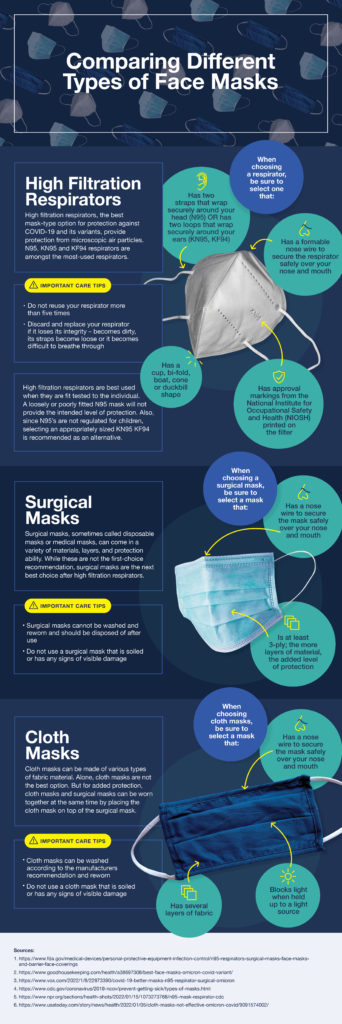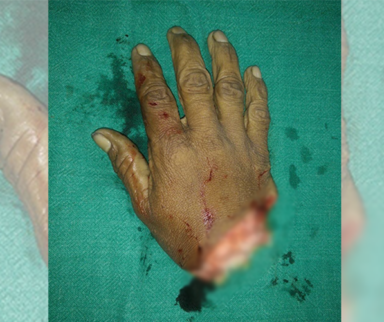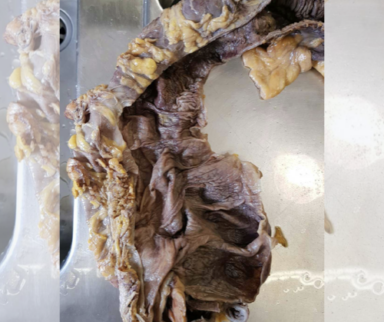

Are your patients feeling a little bit confused about which type of face mask is the right face mask? They’re not alone. With the ebb and flow of the COVID-19 pandemic, and the emergence of new viral variants, there’s been much discussion around different types of face masks available and which ones to use. To help navigate, we’ve created this infographic you can share with your patients.
High filtration respirators, surgical masks and cloth masks are some of the most widely used types of face masks by healthcare workers and the public. Depending on the type of face mask; things like material, fit, and level of protection can vary. But nonetheless, they all share an important purpose – to protect from potentially infectious particles that may be expelled by others, and vice versa.
The current research recommendations from the U.S. Centers of Disease Control and Prevention point to high filtration respirators as the best mask-type option for protection against COVID-19 and its variants. And, when fitted and worn correctly, these high filtration respirators can filter out nearly 95% of airborne particles.
But that doesn’t mean you should tell patients to throw away their surgical or cloth masks just yet! Although these types of face masks may not be the best option for protection, they aren’t completely useless. Surgical masks (those that are at least three-ply) and cloth masks can be used in combination to provide some added protection against large respiratory droplets, like those that would be expelled through a sneeze or cough.
And remember, no matter which type of face mask your patients wear, minimizing risk of getting or transmitting COVID-19 by way of face mask provides them a better level of protection than not using one at all.
Published January 21, 2022
Join the Conversation
Register for Figure 1 and be part of a global community of healthcare professionals gaining medical knowledge, securely sharing real patient cases, and improving outcomes.



